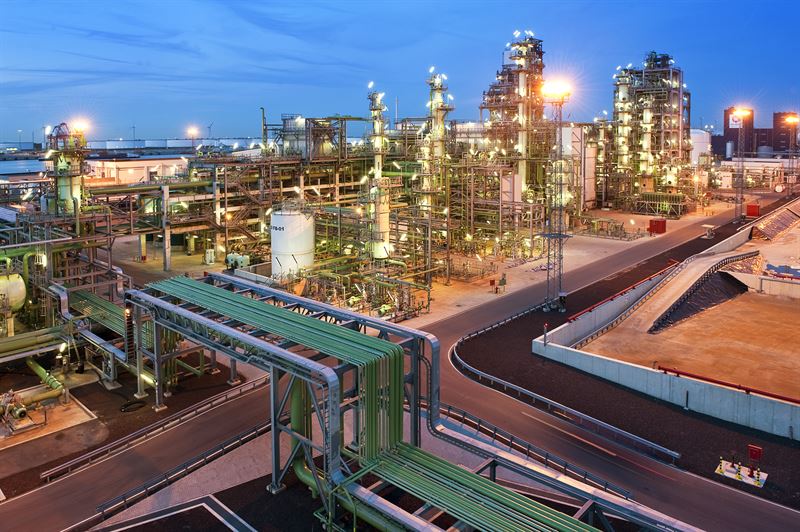The global push toward achieving net-zero emissions is accelerating, and the GCC is not only acknowledging this shift but actively positioning itself to capitalize on it.
However, the GCC Sustainable Fuels landscape is nuanced, with varying levels of maturity and market dynamics for different fuel types. Therefore, investors and policymakers in the GCC must navigate this complex terrain with a clear understanding of the specific characteristics of each fuel.
This Expert Insights article aims to provide a comprehensive overview of the key investment dynamics shaping the GCC Sustainable Fuels sector. It draws upon expert insights from Infoquest Expert Thomas Rebeyrol, former COO of ADNOC Distribution, a seasoned industry veteran with a deep understanding of the field of energy transition. We have also used Infoquest external research to add supportive data.
What GCC Sustainable Fuels Are We Talking About?
The term “sustainable fuels” encompasses a broad range of alternatives to traditional fossil fuels, each with its own production methods, environmental benefits, and economic viability.
Biomass-Based Fuels
These fuels are derived from organic matter and waste materials:
Biodiesel: Produced from vegetable oils, including those from crops like soybeans and palm, or from waste sources such as used cooking oil.
Sustainable Aviation Fuel (SAF): A blend of biofuels and/or synthetic fuels designed for use in aircraft, aiming to reduce aviation’s carbon footprint.
Bioethanol: Produced from the fermentation of sugars derived from crops like sugarcane or corn.
Biogas: A mixture of gases, primarily methane, produced by the anaerobic digestion of organic waste materials, such as animal manure or food scraps.
Hydrogen-Based Fuels
These fuels rely on hydrogen as a key component, produced through various methods:
Green Hydrogen: Produced through the electrolysis of water, using electricity generated from renewable energy sources like solar or wind power. This is considered a truly clean fuel source.
Blue Hydrogen: Produced from natural gas, with the carbon dioxide emissions generated during the process captured and stored using carbon capture and storage (CCS) technology.
Ammonia: A compound of hydrogen and nitrogen, which can be used as a fuel itself or as a carrier for hydrogen, facilitating its transport and storage.
E-Fuels: Synthetic fuels produced by combining green hydrogen with captured carbon dioxide (CO₂). These fuels can be designed to be chemically similar to gasoline or diesel, allowing them to be used in existing internal combustion engines.
“The molecule matters,” emphasizes Thomas Rebeyrol, highlighting the importance of understanding the distinct properties of each fuel type. “Each has its own production cost, transport complexity, and end-market,” which significantly influences its investment potential.
More on GCC Sustainable Fuels, read our expert article, also powered by Thomas’s inputs
The GCC Sustainable Fuels Investment Scorecard
To provide a clearer picture of the GCC Sustainable Fuels investment landscape, we can assess the current state and future prospects of each fuel type using a “Fuel Investment Scorecard”:
|
Fuel Type |
Market Maturity |
Investment Momentum |
|
Blue Hydrogen |
Confirmed (Industry) |
High 🔵 |
|
Ammonia |
Growing (Exports) |
Medium 🟡 |
|
SAF |
Policy-driven |
Medium 🟡 |
|
E-Fuels |
Emerging |
Low 🔴 |
This scorecard illustrates that while some GCC Sustainable Fuels, like blue hydrogen, are already established in industrial applications and attracting significant investment, others, like e-fuels, are still in the early stages of development.
The market maturity and investment momentum are influenced by factors such as production costs, technological readiness, existing infrastructure, and policy support.
“E-fuels are one of the only net-zero options for aviation and shipping, but right now, they’re expensive,” Rebeyrol notes, underscoring the potential of e-fuels in hard-to-decarbonize sectors but also acknowledging the economic challenges that need to be overcome.
What Makes a GCC Sustainable Fuels Project Bankable?

For any GCC Sustainable Fuels project to secure funding and become commercially viable, several key factors are essential:
Confirmed Offtake Agreements: Securing long-term purchase agreements, or “offtake agreements,” is paramount. Without guaranteed buyers for the produced fuel, investors are hesitant to commit the substantial capital required for these projects. “If you want to go into SAF, you need a long-term contract with airline companies, just like a solar PPA,” Thomas Rebeyrol emphasizes. The demand for certain fuels, such as hydrogen, is already emerging from industries like refining (where it’s used in desulfurization processes) and steel production, where it can replace coal in the production process.
Secure Feedstock Access: For biofuel projects, ensuring a reliable and sustainable supply of feedstock is critical. “Without 20-year feedstock security, projects can’t scale,” Rebeyrol states, highlighting the importance of establishing long-term contracts with feedstock suppliers. The availability and cost of feedstocks, such as used cooking oil or sustainably sourced biomass, can significantly impact the economic viability of biofuel projects.
Favorable Policy & Incentives: Government policies and incentives play a crucial role in driving the adoption of sustainable fuels and attracting investment. Mandates that require the blending of biofuels into gasoline or diesel in regions like the EU and parts of Asia create a guaranteed market for these fuels. Incentives, such as tax breaks, subsidies, or grants, can reduce the financial risk for investors and make sustainable fuel projects more competitive. The role of GCC sovereign wealth funds in providing catalytic funding and policy support is particularly important.
Predictable Regulatory Environments: A stable and predictable regulatory environment is essential for attracting long-term investment in the sustainable fuels sector. If policies and regulations change frequently or are unclear, it creates uncertainty and discourages investors from committing capital.
Retrofitting vs. Building From Scratch
The decision of whether to retrofit existing GCC Sustainable Fuels infrastructure or build new facilities is a crucial strategic consideration for sustainable fuel projects:
Brownfield: Cost-Efficient But Limited
Retrofitting existing refineries for the production of certain GCC Sustainable Fuels, such as biodiesel or SAF, can be more cost-efficient than building entirely new facilities. “Retrofitting existing refineries can be ~40% cheaper than greenfield builds,” Rebeyrol states.
This approach is particularly advantageous when there is significant GCC Sustainable Fuels infrastructure overlap with fossil fuel processing. However, retrofitting has limitations. “You cannot always retrofit. If your refinery is already running at full capacity, you’re out of options,” Thomas Rebeyrol also points out.
Greenfield: Costly But Necessary
For the production of other fuels, particularly hydrogen and e-fuels, building new, dedicated GCC Sustainable Fuels infrastructure is often mandatory.
This includes:
- Electrolyzers for green hydrogen production.
- Carbon capture systems for blue hydrogen and e-fuels.
- Cryogenic storage facilities for hydrogen, which must be liquefied at extremely low temperatures (-253°C) for efficient storage and transport.
- Ammonia synthesis facilities.
“Hydrogen must be liquefied at -253°C. That’s not something you just retrofit overnight,” the article emphasizes, highlighting the significant investment and technical challenges associated with greenfield development.
The Role of GCC Sustainable Fuels Joint Ventures
Joint ventures (JVs) play a critical role in mitigating risks and maximizing the success of GCC Sustainable Fuels projects.
Why Aramco x TotalEnergies Works
The example of the joint venture between Aramco and TotalEnergies illustrates the benefits of such collaborations.
- Aramco brings to the table:
- Capital: The substantial financial resources needed for large-scale projects.
- Scale: The ability to execute projects at a large scale.
- Feedstock access: Control over domestic hydrocarbon resources.
- TotalEnergies contributes:
- Energy transition technology: Expertise in developing and deploying sustainable fuel technologies.
- European offtake buyers: Access to established markets and customers in Europe.
“These kinds of capitalistic collaborations align incentives and lower risks,” Thomas Rebeyrol emphasizes, highlighting the importance of aligning the goals and interests of all partners. The result is projects that are not only technically viable but also financially executable.
Timing Is Everything
The Investor’s Dilemma
Timing investments in the sustainable fuels sector is crucial.
“You will have big investments for confirmed demand, and wait-and-see for the rest,” Thomas Rebeyrol predicts.
Companies that invest too early in unproven markets risk incurring significant losses, while those that wait too long may miss out on valuable opportunities.
Conclusion
Invest With Eyes Wide Open
The GCC possesses the capital, infrastructure, and political will to become a major player in the sustainable fuels market. However, success depends on a nuanced understanding of the market dynamics and a strategic approach to investment.
For investors and policymakers, the key principles are:
- De-risk investments by securing long-term offtake agreements.
- Ensure reliable and sustainable access to feedstock.
- Focus on fuels with proven or rapidly developing demand.
- Structure joint ventures that align the incentives of all partners.
“The GCC is extremely well-positioned to lead—but timing, tech, and contracts will make or break it,” Thomas Rebeyrol concludes, emphasizing the importance of careful planning and execution.
For those seeking direct access to expert insights from energy transition leaders such as Thomas and others, Infoquest’s Expert Network provides a valuable resource.
Contact us at info@iqnetwork.co or reach out to us here.

